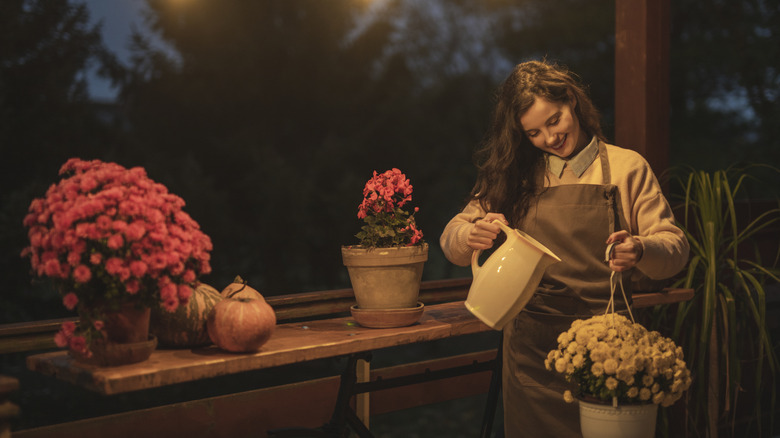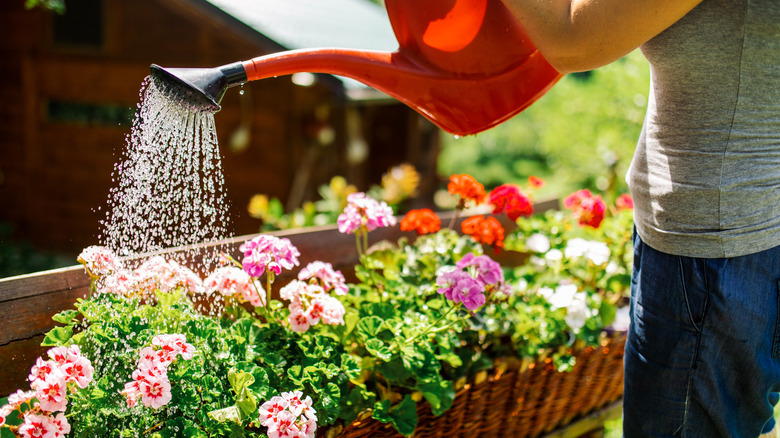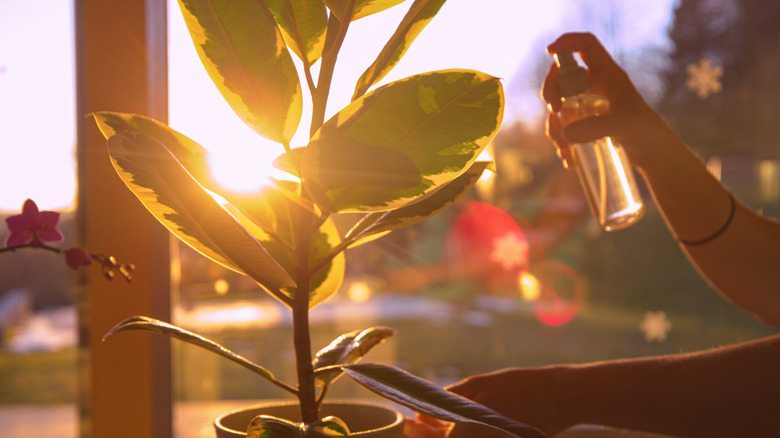Why You Should Think Twice Before Watering Your Plants At Night
The time of day when you water plants impacts how they take in water and nutrients, which affects their metabolic processes, nutrition absorption, and overall growth. It's generally recommended to water them in the morning or during the day when the temperatures are warmer and the sunlight is available. Watering your plants at night or later in the evening means they will dry slower, grow slower, and be at a higher risk of diseases.
If you live in a high-humidity region, then watering plants at night can also increase the humidity levels around them and make it a more favorable environment for fungi, mold, and other pathogens. As you consider when to water, also consider the specific requirements of your plants. Factors such as plant type, pot size, and environmental conditions may influence the frequency and amount of water your plants require. Observing your plants and adjusting your watering routine accordingly will go a long way.
Water your plants during the day instead
While watering your plants at night might be more convenient — especially if you have a busy schedule — it's important to carve out time during the day for this task so they can make the most of the sunlight they receive. When you water your plants in the morning or during the day, the warmth of the sun helps the excess water on the leaves and soil to evaporate more quickly. This also helps maintain a healthier balance between soil moisture and air circulation, preventing waterlogged conditions that can suffocate the roots.
Watering during the day also promotes a healthy root system because it allows the water to penetrate the soil more effectively. As the water is absorbed by the roots, it encourages root growth and development. Watering at night can create a prolonged period of moisture on the leaves and in the soil, increasing the risk of fungal diseases, which thrive in damp conditions.
The best time of the day to water your plants
It's important to note that the specific period of sunlight when you water also matters! Watering during the hottest parts of the day, at peak sunlight, or in the middle of a very hot summer day, can lead to water loss due to evaporation before it can penetrate the soil and reach the plant roots. Try to avoid this time so the plants can get properly hydrated. Instead, water in the morning or late afternoon so your plants will be able to soak up the water.
Watering early in the morning is especially beneficial to ensure hydration before the heat of the day comes and gets them ready for the whole day. This is also best during the winter because they will have time to absorb the water and won't be wet enough to freeze when night comes. Late afternoon or early evening should be your backup time. Regardless of this ideal schedule, water your plants any time of the day if you notice that they are struggling.


